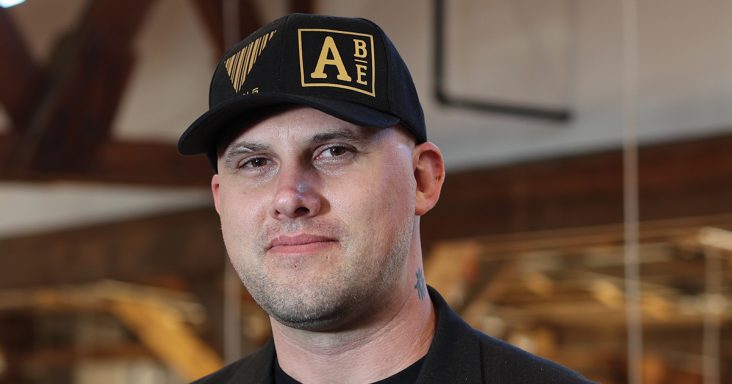Group works to support, expand Arkansas’ podcast market
by September 28, 2023 6:48 am 508 views

Many business owners faced unique challenges trying to reconnect with existing customers and reaching out to new ones as the COVID-19 pandemic unfolded in 2020. Schools were shuttered for months, public activities were canceled or scaled back, and social norms such as dining out were limited.
Legacy Insurance co-owner Tyler Watkins told Talk Business & Politics that as 2021 started to unfold he had an idea to reach new and existing customers. He started a podcast. The Legacy Lowdown features many civic and business leaders connected to the city of Jonesboro. To date, the podcast has released 44 episodes.
“Even in 2021 we still had some restrictions and I needed a way for my customers and new potential customers to hear my voice,” Watkins said. “I wanted to connect with them through people and topics that I find interesting. It has worked out well so far.”
Podcasting has experienced explosive growth in recent years. According to the Pew Research Center, about 43% of Americans surveyed had listened to a podcast during the last month, meaning about 135 million people are listeners. That’s up from the 13% of Americans who listened to podcasts in 2013. Worldwide, nearly half a billion people have listened to podcasts.
Forbes reported that the podcast industry topped $1 billion in revenues in 2022 and is projected to generate $4.2 billion by 2024. Most podcasters do it as an art form or use it as a marketing tool, however.
Arkansas has historically lagged behind the rest of the country when it comes to technological innovations, but a nonprofit organization, the Arkansas Podcast Collaborative, hopes to aid prospective podcasters in the state, according to co-founder Ti King.
“Podcasting has been around for 25 years, but for a lot of people it’s fairly new,” King said. “A lot of people have ideas about what they want to podcast about.”
The Collaborative was an outgrowth of the first ARKAST podcast festival King organized in 2022. One of his first participants was Karen Tricot Steward, a longtime journalist who is also the CEO and founder of the Power of Pod, a company that provides services for podcasters. Steward heard about plans for the festival, and she hoped King would ask her to be involved. When the festival ended, Steward, King and APC’s third founding member, Brittany Rush, decided the state needed more than a festival to help the burgeoning podcast market.
APC started with creating a database of podcasts in Arkansas, King said. To date they’ve identified about 250, but the organization believes the number could be closer to 300 and it grows daily, King said.
True crime is the most popular podcast genre in the state in terms of content created, Steward said. Other popular genres include sports, religion, business and politics.
The state’s diversity within the podcast community needs to be developed, she said. By percentage there are far fewer minority groups such as African American and Asian Americans in the space.
“We need a more diverse group telling their stories,” she said. “We need to lower the barrier to entry. If you are intimidated, ask us for help. We can help you.”
One obstacle for prospective podcasters is the technological hurdles they anticipate, King said. Many wonder how they can record, produce, and edit a podcast and then get it onto platforms such as Spotify and Apple. Others are concerned about the equipment needed. Some are fearful no one will listen.
“If you have a phone, you have all the equipment you need to get started,” he said. “We can help you.”
Watkins agreed with King and Steward that starting a podcast is relatively easy. He said he was shocked by how little equipment was needed, or how quickly you can upload episodes to listening platforms.
“It’s honestly easier than I thought. If you need help editing or producing, there are people and services that can help you. It’s not hard,” he said.
The hardest part for Watkins was turning on the microphone and starting the conversation with his first guest.
“It’s intimidating at first … putting a microphone in someone’s face,” he said. “But after a while you forget it’s there and the conversation develops.”
One outgrowth that will occur as more podcasts are produced will be an increase in quality, Steward said. As the listening market gets tighter, podcasters will have to improve the quality of their product in order to compete for those listeners, she said. Networking and marketing are two benefits that podcasts can bring to businesses, King said. Profiling guests or topics can help a business owner reach out to the niche audiences that he or she is hoping to reach, he said.
“It’s ROI — Return on influence,” he said.
One of the goals for APC is to have a physical space for workshops and other events, Steward said. The organization would also like to do some “pop up podcast garage” style seminars around the state.
The second annual ARKAST podcast festival was held in September. APC sponsored the festival that featured several events in Little Rock and in Northwest Arkansas. Attendance was slightly down for the culminating festival that was held at the Innovation Hub in North Little Rock. APC officials have several ideas that they are floating to improve attendance for the next festival slated to be held in 2024.
During the last two years Watkins has had several local business leaders on his show including Amanda Herget, co-owner of Gearhead, musicians such as Garrett Tyler, former Mayor Harold Perrin, and former childhood actor Paulie Litowsky showed up for an episode.
Anybody else he’d like to interview?
“There’s a lot of interesting people in Jonesboro. I guess if I had a dream list it would include former Gov. Mike Beebe and country music star Ashley McBryde. They would be on the list for sure,” he said.
